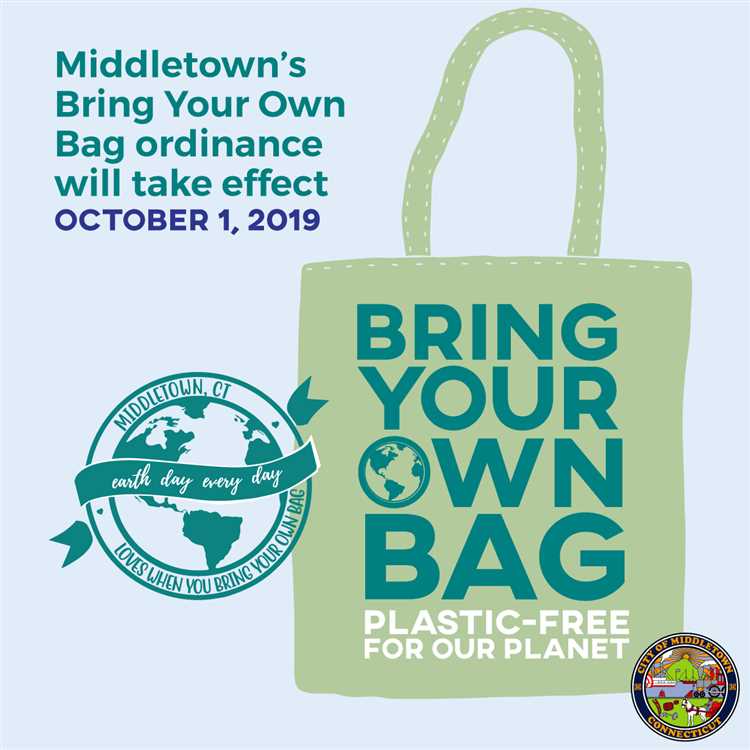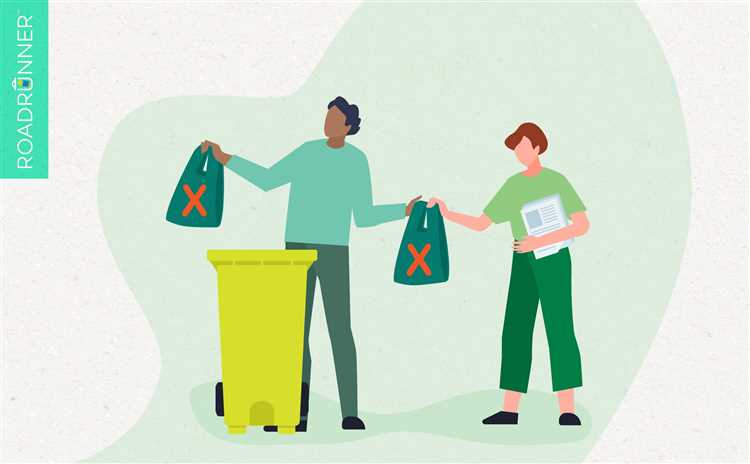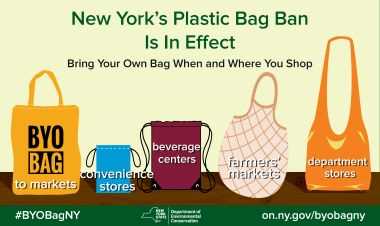In recent years, there has been a growing global movement to reduce plastic waste and its harmful effects on the environment. One significant step that many countries and cities have taken is the implementation of a plastic bag ban. This ban aims to tackle the widespread issue of single-use plastic bags, which are notorious for their negative impact on ecosystems, wildlife, and human health.
The detrimental effects of plastic bags are too great to ignore. These bags are not biodegradable and can persist in the environment for hundreds of years, releasing toxic chemicals as they break down. They often end up in water bodies, where they pose a serious threat to marine life. Sea turtles, whales, and seabirds are just a few examples of the creatures that can mistake plastic bags for food or become entangled in them, resulting in injury or death.
By implementing a plastic bag ban, we have the opportunity to make a significant difference in reducing plastic waste and protecting our planet. This ban encourages individuals and businesses to shift to more sustainable alternatives, such as reusable bags made from natural materials or durable, long-lasting materials like canvas or recycled plastic. It serves as a reminder for all of us to be more mindful of our daily choices and the impact they have on the environment.
Moreover, a plastic bag ban also promotes a shift towards a circular economy, where resources are used efficiently, waste is minimized, and products are designed to be recycled or biodegradable. This transition can lead to the creation of new jobs and economic opportunities in the recycling and sustainable packaging industries, ultimately contributing to a more resilient and sustainable future.
- Plastic Bag Bans: Protecting the Environment
- The Impact of Plastic Bags on the Environment
- 1. Pollution
- 2. Wildlife endangerment
- 3. Harmful to ecosystems
- 4. Resource consumption
- Global Efforts to Reduce Plastic Bag Waste
- The Benefits of Implementing a Plastic Bag Ban
- 1. Reduce plastic pollution
- 2. Protect marine life
- 3. Conserve resources
- 4. Encourage sustainable consumer habits
- 5. Save money
- Question-answer:
- What is the purpose of the plastic bag ban?
- How will the plastic bag ban affect consumers?
- What are the benefits of banning plastic bags?
- Are there any exemptions to the plastic bag ban?
Plastic Bag Bans: Protecting the Environment
Plastic bag bans have become a crucial part of the global effort to protect the environment. These bans are implemented to tackle the detrimental effects that plastic bags have on the natural world. By prohibiting the use of single-use plastic bags, governments and communities are taking action to reduce waste and promote sustainable alternatives.
|
1. Reduce Plastic Waste: The primary goal of plastic bag bans is to reduce the amount of plastic waste that ends up in landfills, oceans, and other ecosystems. Plastic bags are lightweight and can easily be carried away by wind or water, leading to pollution and harm to wildlife. By banning plastic bags, less waste is produced and the burden on the environment is significantly reduced. |
2. Protect Marine Life: Plastic bags pose a significant threat to marine life. Sea turtles, dolphins, and other animals mistake them for food and ingest them, leading to suffocation and death. Additionally, plastic bags can entangle marine animals, causing injuries and impairing their ability to swim or hunt for food. Plastic bag bans help safeguard marine ecosystems and preserve biodiversity. |
|
3. Promote Sustainable Alternatives: Plastic bag bans encourage the use of sustainable alternatives, such as reusable bags made from natural fibers or recycled materials. By shifting consumer behavior towards reusable options, the demand for single-use plastics decreases, leading to a more eco-friendly society. This shift towards sustainability also encourages innovation in the development of alternative packaging materials. |
4. Save Resources: The production of plastic bags requires significant amounts of fossil fuels and water resources. By banning plastic bags, these valuable resources can be conserved for more essential purposes. Additionally, the energy and resources required for the production, transportation, and disposal of plastic bags can be redirected towards more sustainable practices and industries. |
|
5. Raise Awareness: Plastic bag bans serve as a powerful tool to raise awareness about the environmental impact of single-use plastics. They encourage individuals and businesses to reevaluate their consumption habits and make conscious choices to protect the planet. By implementing plastic bag bans, communities can initiate a larger conversation about waste reduction and sustainable practices. |
6. Set an Example: Plastic bag bans set an example for other communities, regions, and nations to follow suit. When one community successfully implements a ban, it inspires others to take similar actions. This domino effect contributes to a global movement towards reducing plastic waste and protecting the environment for future generations. |
In conclusion, plastic bag bans play an essential role in protecting the environment by reducing waste, preserving marine life, promoting sustainable alternatives, saving resources, raising awareness, and setting an example for others to follow. These bans are a crucial step towards a more sustainable and eco-friendly future.
The Impact of Plastic Bags on the Environment

Plastic bags have become a ubiquitous part of our daily lives, but their convenience comes at a significant cost to the environment. Here are some of the most significant impacts of plastic bags:
1. Pollution
Plastic bags are a major source of pollution. They are often lightweight and can easily be carried by the wind, leading to littering in our streets, parks, and waterways. This creates an unsightly environment and poses a threat to the wildlife that may mistake them for food.
2. Wildlife endangerment
Marine animals, in particular, are at risk due to plastic bags. Many creatures mistake plastic bags for food and ingest them, leading to suffocation, internal injuries, and death. Additionally, animals can become entangled in plastic bags, restricting their movement and causing injury or drowning.
3. Harmful to ecosystems
Plastic bags are not biodegradable and can persist in the environment for hundreds of years. As they break down into smaller plastic particles, known as microplastics, they infiltrate the soil and water systems, posing a threat to various ecosystems. Microplastics have been found in the stomachs of marine animals and even in tap water consumed by humans.
4. Resource consumption
The production of plastic bags requires significant amounts of non-renewable resources, such as oil and natural gas. Furthermore, the process of manufacturing plastic bags contributes to greenhouse gas emissions and exacerbates climate change.
Overall, the widespread use of plastic bags has a severe impact on the environment. It is crucial that we take action to reduce their consumption and promote more sustainable alternatives.
Global Efforts to Reduce Plastic Bag Waste

Plastic bag waste has become a worldwide environmental issue, and countries and communities around the globe have taken action to reduce their use and promote sustainability. Here are some examples of global efforts to reduce plastic bag waste:
| Country/Region | Actions Taken |
|---|---|
| India | Banned the use of plastic bags in several states and implemented a strict regulation on the manufacturing and sale of plastic bags. |
| Rwanda | Implemented a complete ban on the use, importation, and production of plastic bags since 2008, becoming one of the first countries to do so. |
| Kenya | Banned the use, manufacture, and importation of plastic bags in 2017, with penalties including fines and imprisonment. |
| European Union | Implemented legislation that requires member states to reduce the consumption of lightweight plastic bags and promote the use of reusable bags. |
| China | Introduced a nationwide ban on the production, sale, and use of ultra-thin plastic bags, reducing their consumption by more than 66%. |
| Australia | Several states and territories have implemented bans or fees on single-use plastic bags, encouraging the use of reusable alternatives. |
These are just a few examples of the global efforts to reduce plastic bag waste. By implementing bans, fees, or regulations, countries and communities are taking important steps towards a more sustainable and environmentally-friendly future.
The Benefits of Implementing a Plastic Bag Ban
A plastic bag ban can have numerous positive effects on the environment and society as a whole. By taking action to reduce the use of plastic bags, we can:
1. Reduce plastic pollution

Plastic bags are a significant source of pollution, contributing to the destruction of ecosystems and harm to wildlife. By banning plastic bags, we can prevent millions of bags from ending up in landfills, rivers, and oceans, where they can take hundreds of years to decompose.
2. Protect marine life
Marine animals often mistake plastic bags for food, leading to severe injuries or even death. By eliminating plastic bags, we can reduce the risk of marine life ingesting harmful plastic and suffering from related health issues.
3. Conserve resources
Plastic bags are made from non-renewable resources, such as petroleum and natural gas. By implementing a plastic bag ban, we can reduce our dependency on these resources and promote the use of more sustainable alternatives, such as reusable bags made from biodegradable materials.
4. Encourage sustainable consumer habits

Banning plastic bags can motivate individuals to adopt more sustainable consumer habits. People may be more inclined to bring their own reusable bags when shopping, leading to a decrease in overall plastic waste generation and greater awareness of environmental issues.
5. Save money
Plastic bags are costly to produce and dispose of, as they require resources for manufacturing and often end up in landfills and waste management facilities. By implementing a plastic bag ban, local governments and businesses can reduce their expenses related to bag production and waste management.
In conclusion, implementing a plastic bag ban has numerous benefits for the environment and society. It can help reduce plastic pollution, protect marine life, conserve resources, encourage sustainable consumption, and save money. By taking action and implementing a plastic bag ban, we can contribute to a healthier and more sustainable future.
Question-answer:
What is the purpose of the plastic bag ban?
The purpose of the plastic bag ban is to reduce the use of single-use plastic bags, which are harmful to the environment.
How will the plastic bag ban affect consumers?
The plastic bag ban will require consumers to bring their own reusable bags when shopping, as single-use plastic bags will no longer be provided by stores. This may require a change in behavior and habits, but it will help reduce plastic waste.
What are the benefits of banning plastic bags?
Banning plastic bags has several benefits. It reduces plastic pollution in oceans and landfills, conserves resources used in the production of plastic bags, and encourages the use of more sustainable alternatives like reusable bags.
Are there any exemptions to the plastic bag ban?
Some jurisdictions may have exemptions to the plastic bag ban, such as allowing certain types of bags for specific purposes like carrying raw meat or medications. However, the specifics may vary depending on local regulations.